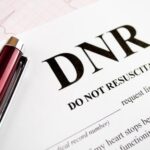As people age, their medical needs become more complex. It is important for a person and their loved ones to plan for the future in case they become unable to make decisions for themselves. In such situations, a Medical Power of Attorney (MPOA) can be a crucial tool that provides a trusted family member or friend with the legal authority to make medical decisions on a person’s behalf. Elderly people and their loved ones will want to understand the situations where having an MPOA may be necessary, and they will also want to be aware of what specific issues a Medical Power of Attorney may address.
Understanding the Benefits of an MPOA
A Medical Power of Attorney will allow a person to designate someone they trust to make decisions about their medical care in the event of an emergency or if they are no longer able to do so. If a senior citizen has dementia, is in a coma, or is incapacitated in any other way, a medical power of attorney will go into effect, and their health care agent (the person named in the MPOA) will be able to make decisions on their behalf.
The MPOA will help ensure that the elderly person’s wishes will be followed when it comes to the treatments they receive, including end-of-life care. For example, in a Medical Power of Attorney agreement, a person may state that they want surgery to be performed if they encounter certain health issues, or they may decide that they do or do not want to use specific medications. They may also specify that if their condition becomes terminal, they do not wish to be put on life support or that certain other treatments should or should not be used. The MPOA will also generally cover decisions about the senior citizen’s living arrangements and care plan.
By appointing someone they trust as their health care agent, an elderly person can be sure that their wishes will be carried out correctly even if they are unable to make decisions for themselves, and they can also help ensure that their loved ones will not have to worry about making difficult choices in a time of crisis. A person can give their agent broad authority to make any medical decisions that are necessary, or they can limit the types of decisions that can be made and provide detailed instructions about the treatments they do or do not want to receive.
Who Should Have an MPOA?
An elderly person should consider creating a Medical Power of Attorney if they are worried about their health or concerned about the decisions that may need to be made in the future. These types of agreements can be particularly important for people who have chronic conditions or who are at risk for developing complications that could render them incapacitated or cause them to be unable to communicate their wishes.
Those who are approaching an advanced age should consider creating a Medical Power of Attorney to ensure that they will receive the proper care, no matter what may happen in the future. If a person does not have an MPOA in place, and they become incapacitated, it may be necessary to establish guardianship, which can be a much more complicated legal process that may restrict a person’s rights and limit the actions that family members can take on their behalf. Having an MPOA can help guarantee that an elderly person and their loved ones will remain in control over their medical and personal care.
Contact Our Dallas Medical Power of Attorney Lawyer
For elderly people and their loved ones, it is important to be informed about the options for addressing medical issues and personal needs. By creating a Medical Power of Attorney, a family can rest assured that they will be prepared to handle any concerns that may arise. At Andrew Dunlap Attorneys, PLLC, our Irving estate planning attorney can help families understand their options and make the right decisions when it comes to ensuring the medical needs of their elderly loved ones are taken care of. Contact us at 972-807-6357 to arrange a consultation and learn more about how we can assist with these issues and other estate planning concerns.
Sources:
https://statutes.capitol.texas.gov/Docs/HS/htm/HS.166.htm
https://www.hhs.texas.gov/sites/default/files/documents/laws-regulations/forms/MPOA/MPOA.pdf
More Information
-
3 Major Mistakes to Avoid When Drafting a Power of Attorney
Power of attorney is a legal tool that allows a person to grant someone else…
-
Do-Not-Resuscitate Orders and Advance Medical Directives
Do-not-resuscitate (DNR) orders and advanced medical directives (AMDs) are legal documents in Texas that allow…
-
Three Misconceptions Regarding Advance Medical Directives
Advance medical directives (AMDs) are legal documents that allow individuals to express their healthcare preferences…
-
Three Types of Advance Medical Directives in Texas Estate Planning
Estate planning is not just about distributing your assets; it involves planning for future medical…
-
Understanding the Basics of a Special Needs Trust
A special needs trust (SNT) is a crucial legal tool designed to provide for individuals…
-
What Are the Benefits of an Irrevocable Trust?
When we discuss trusts in the context of estate planning, we often focus on revocable…









